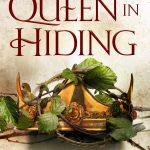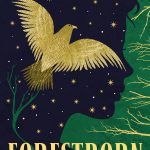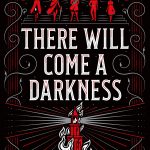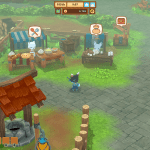Writers and Illustrators of the Future Awards 2024
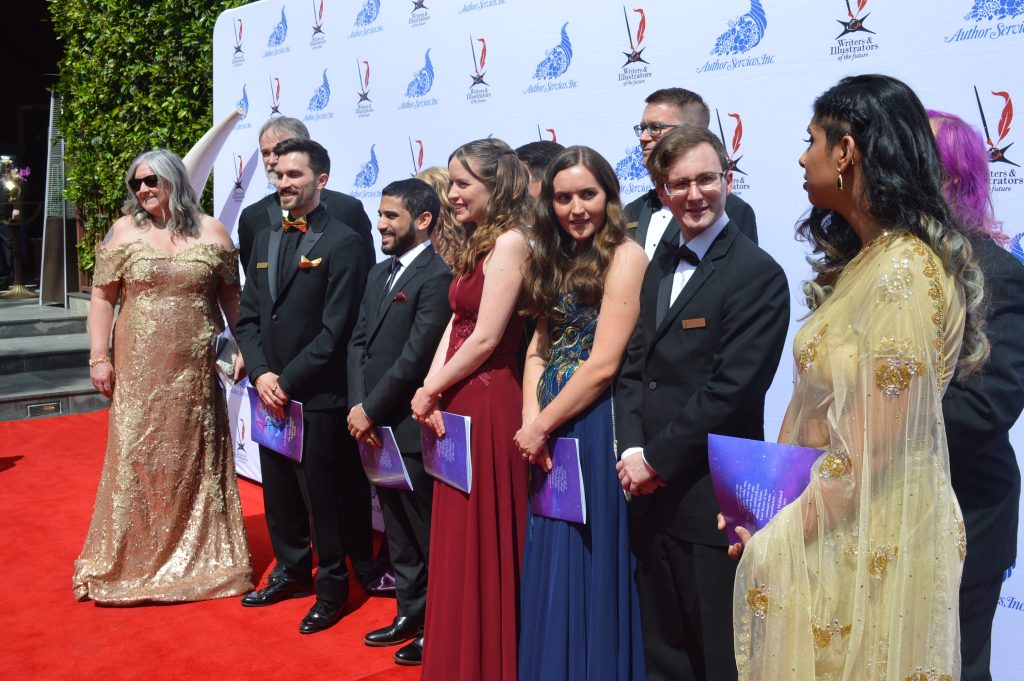
On April 25, 2024, the Taglyan Complex in Hollywood, California, was the home of the 40th Writers of the Future Awards and 35th Illustrators of the Future Awards.
Created by L. Ron Hubbard, the contests are a way for current writers and illustrators to pay it forward to new and upcoming talent. Each quarter, three winners are selected among the entries, receiving cash prizes. Then, every year, the 12 winners from each contest are flown out for a week-long workshop with such greats as Kevin J. Anderson, Echo Chernick, Larry Niven, and more mentoring the winners. This all then cumulates in an award ceremony at the end of the workshop, where the winners are celebrated and then a grand prize (The Golden Pen Award for writers and The Golden Brush Award for illustrators) is announced, with a $5,000 prize. There is also an anthology of the winning stories and illustrations that the winners then get to autograph after the celebration.
This year’s winner of the Golden Pen Award was Jack Nash, writer of “Son, Spirit, Snake”, and the winner of the Golden Brush Award was Tyler Vail, illustrator of “Squiddy”.
“The fact that we are celebrating 40 years is something that no one could have predicted when this thing launched with the first book coming out in 1985,” said John Goodwin, President of Galaxy Press, which runs the contest. “The fact that we are now up to winners in 8 countries, and almost up to 1,000 winners now over the years. Many of today’s top professionals in the industry came because of this contest.”
There is no fee to enter the contest, and winners retain full rights to their work. “You absolutely cannot win if you don’t enter,” Goodwin said. “It’s a pure meritocracy, so it levels the playing field.”
I also spoke to Joni Labaqui, the Director of the Contests for Author Services, about the contest. “They just keep getting better,” she said about this year’s entries. “The quality: this year, the judging was closer than I’ve ever seen on both sides. That’s how high the quality was.”
For those who are interested in entering, Labaqui said, “You have to be persistent. Don’t give up if you don’t win. We have a free online workshop that you can do that’s 25 hours long, and you can take it as many times as you want.”
She continued, “We’re doing what they don’t get in college or in school. They’re getting what famous people have successfully done to launch their own careers. It just doesn’t happen anywhere else. Because all my judges are also very much mentor-oriented: I want to help the new guy. They’re about helping – pay it forward. That’s the whole mentality that we teach these guys, too.”
I asked her about what has surprised her since the contest started 40 years ago. “I would say the diversity of the stories and the reach that we’ve had. We have winners from all over the world – 178 countries. Online is what did it. When we started this contest, there was no internet. As the internet gets bigger, so does this contest.”
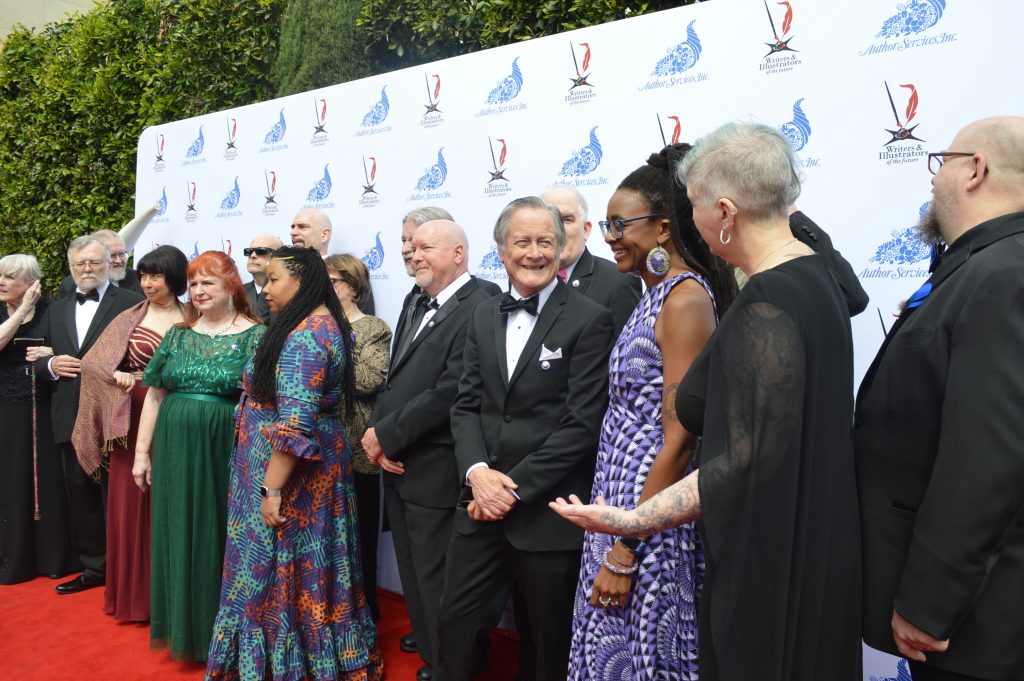
I managed to snag a few minutes with the Coordinating Judge for the Writers Contest, Jody Lynn Nye, and the Coordinating Judge for the Illustrators Contest, Echo Chernik. I asked what jumped out about the winning entries. “I think that they are unique in their own ways,” Nye said.
“They’re all wonderful entries this year,” Chernik said. “I noticed an increase in traditional artists: more people working traditionally versus digitally. A lot of them can work in both, but a lot of them are more oil painters and gouache, which I think is a response to the AI movement. That’s encouraging to see: I like seeing artists that work both traditionally and digitally. They’re all mediums in the end that artists should be working on.”
I asked them both for advice for those who may be interested in entering. “Don’t follow trends,” Nye said. “Follow what you love and what you want to write about, because you will always write something better that comes from your own experience, that comes from inspiration you find. It’s always better to go into your own mind, because you will do better at that than anything else.”
“The future of illustration is to do what excites you,” Chernik said. “The judges can see that you’re excited about what you’re working on and what you’re illustrating. I try to curate and send along to the judges pieces that are strong and that show the passion of the artist.”
“I am always astonished every year – year after year – of the wonderful stories that I get from the writers,” Nye said. “All I can say is send me more: send me stories, send me something else – I can’t wait to read it.”
I then talked to Dean Wesley Smith, not only one of the judges but the first winner of the Writers of the Future contest. I asked him what had changed in the 40 years since he won. He laughed, and said, “Everything. This is a tremendous ceremony now. It’s just been life-changing. It’s been really amazing to be involved: they are so supportive of young writers. That’s why I’m here: is to help pay back and support young writers like they supported me 40 years ago.”
As for advice, Smith said. “I look for something that will catch me as a reader and pull me in and make me realize I’m not reading, that I’m in a story. That’s my main criteria: if the writers can hold me and get me all the way to the end of the story, that’s fantastic.”
I also talked to author Kevin J. Anderson. “We read all the first-place winners to pick who the grand prize winner is, and there’s usually a story that just stands out: it’s head and shoulders above anything else. And this year, there wasn’t one because, they were all the best we’d ever seen. I don’t remember anything like that before, that there wasn’t an obvious winner. These were all outstanding stories, and I made a point during the workshop that I wanted to find those authors and I wanted to tell them how much I liked their stories.”
I also asked him for advice for those who want to enter. “Be awesome,” Anderson said. “Write something that’s really great. But don’t try to copy anything. The thing that stands out is that people did something that we hadn’t seen before.”
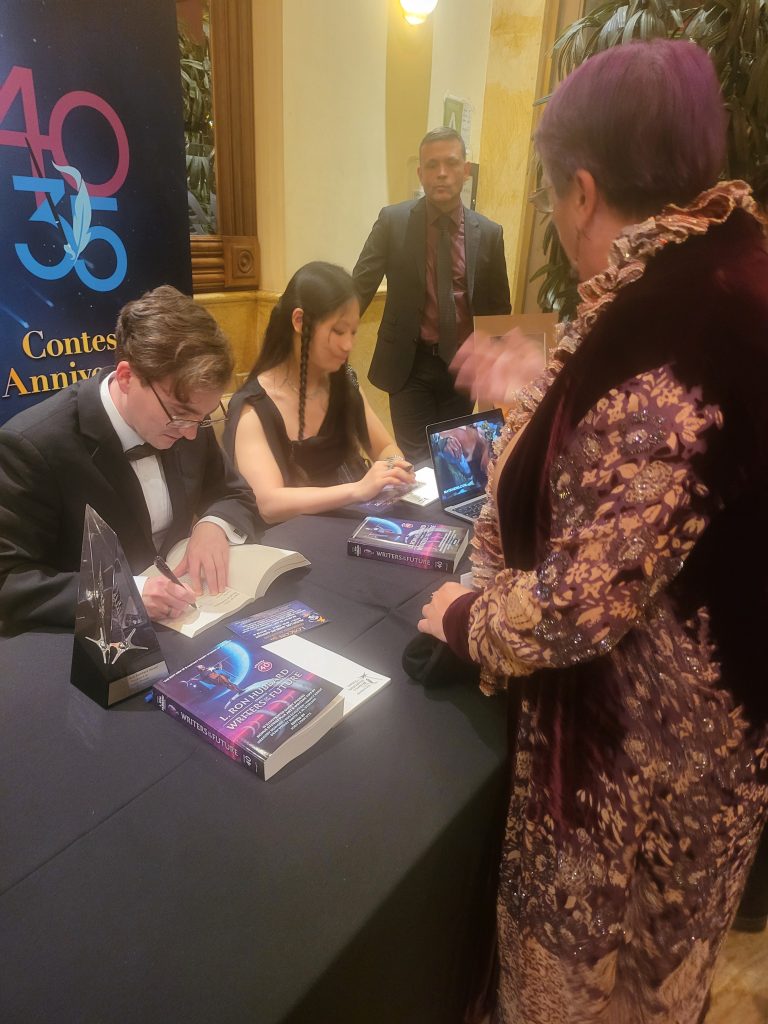
Illustrator Bob Eggleton, who is the founding judge of the Illustrators of the Future Contest, was also at the red carpet. “When we started this contest I can say that I can look back and we didn’t have the technology we have now,” he said. “It was all done by mail, and it was all black and white line artwork photocopies. Then as we got into the digital age, we got into images online so we were able to do color artwork, which really brought out the flavor of a lot of great new artists.”
I asked what had changed since the contests began. Eggleton said, “It’s been a very strange evolution. I’ve seen the contest go for over 37 years. It never ceases to amaze me the amount of work and the good art I see.”
As for the work itself? “Art is very subjective. It’s like a case of what some people like, other people don’t. And that’s kind of just the way life is,” Eggleton said. “It’s all changing: we live in a very changing fast world. Where as I used to do a lot of book covers and things of this nature, that’s not so much the thing anymore. I still do some, but it’s a much bigger world and a much bigger way of getting art out there to much bigger masses. Science fiction, fantasy, all that – it’s all become so mainstream. Back when I started, it was kind of culty and kind of underground. It’s now mainstream: we are in science fiction. We are in the fabled futuristic 21st century.”
The contests are currently accepting submissions for the 3rd quarter of 2024, with a deadline of June 30, 2024. More information can be found on the Writers of the Future website. You can see this year’s full ceremony there as well.
You’ll be able to listen to the full audio of all the interviews I did on the red carpet (including ones with Larry Niven and Nnedi Okorafor) in my podcast, Contents May Vary, for my next episode, which will come out on May 16. Past episodes of the podcast include longer interviews with Kevin J. Anderson and Jody Lynn Nye, as well as an interview with one of the previous judges, Nancy Kress.
Author: Angie Fiedler Sutton
Angie Fiedler Sutton is a writer, podcaster, and all-round fangirl geek. She has been published in Den of Geek, Stage Directions, LA Weekly, The Mary Sue, and others.
She also produces her own podcast, Contents May Vary, where she interviews geeky people about geeky things. You can see all her work (and social media channels) at angiefsutton.com.
Help support independent journalism. Subscribe to our Patreon.
Copyright © The Geekiary
Do not copy our content in whole to other websites. If you are reading this anywhere besides TheGeekiary.com, it has been stolen.Read our


